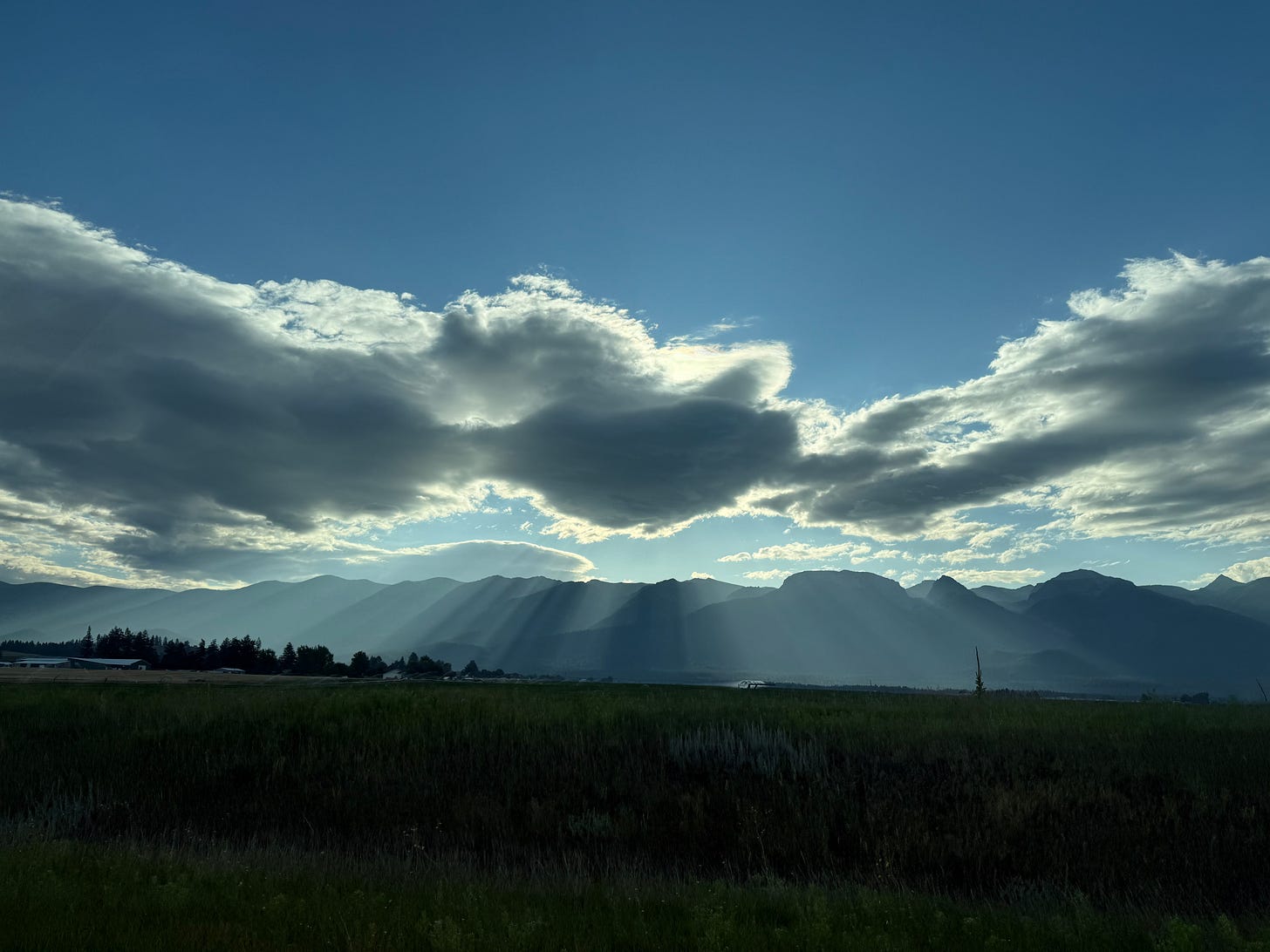Two years ago, I sat with a stranger in a hospital room, holding space for their grief as a loved one slipped away. That was my first day as a chaplain in a critical access hospital in “just south of somewhere, Montana.” Nobody has asked me where that is, but they’ve all felt the weight of the moments we carry from our experiences with loss, love, and grief.
I remember parking in the dirt lot and trying to figure out how to badge into the building. I recall attending my orientation and being invited to “get lost” in the hospital, meaning, see where my badge lets me go and where it doesn’t. Fun fact: I can’t get into the medicine rooms.
Starting any new job is overwhelming: there is not only the work we have to learn but the cultural language, the medical jargon, and the system that supports the work. I had to (and continue to) learn about our medical software, charting, and describing the different types of spiritual care interventions I would use to meet different needs. But it is the stories of patients and families, not the software, that shape the heart of my days.
Since then, I’ve been with hundreds of patients in a town of thousands. I’ve heard stories of grief and regret, held hope with patients and families, witnessed loss, seen the turnarounds, and ushered the departed to the great and mysterious next.
I sat with a family member whose loved one was dying. Sometimes these deaths are known and expected. Well, maybe not expected but at least anticipated. I’ve stood with family members in the waiting room, sat in the hallway with grieving mothers, offered hymns of hope at bedsides, and cried my tears of longing. I’ve celebrated remissions, discharges to favorable conditions, and advocated for peace. I am glad this work has found me.
As I entered a dimly lit room, I met the eyes of a family member of a patient who was dying. They looked at me and said, “You see this a lot, don’t you, Chaplain.” I do see this often, and yet each one is unique and important. No two endings are the same, and some stay with me more vividly than others. The journey between worlds is a well trodden path, and yet, the view is different every time.
A fellow caregiver remarked to me this week, “I imagine your work is rewarding, too.” And in a way, yes. But the reward is not treasure; the work is transforming and, at the end of the shift, I am changed because of the people I meet.
I left traditional church ministry in 2023, had a few weeks off, and began the work of caring for the religious, spiritual, and emotional needs of patients, families, and caregivers. This has been my favorite work, but not in the usual way. It has been some of the hardest work I’ve ever done because, unlike when I was in the church, I am the one who is constantly changed and moved. In the halls of the hospital, I feel the freedom to become while never arriving. In the pews, I was pressured to offer certainty and firm opinions-stated-as-facts. In the hospital, the work is gentle and subtle. I hold space for what is, hold hope for what could be, and love this present moment.
If you have been following along with my writing, you may have noticed a subtle shift. Perhaps like a child growing we don’t notice the changes while they are happening yet when they stand tall to mark their height on the wall we see inches of change over short periods of time.
I see in myself a settling and a slowing. When you take a few steps into a river, the sediment tends to kick up and make the water cloudy. Stand still long enough and you can see the bottom clearly. Not clearly enough to know every answer, but clear enough to see the beauty and depth in each moment.
Usually when I reach the two-year mark of a job, I am ready to move on. And while I stand here, the formation I experience is one that draws me back each day. I can’t say that I’ve found the thing I was necessarily “meant to do” as much as this work affords me the opportunity to become the person I long to be.
I wonder: what moments in your life draw you back, day after day, to become the person you long to be?



Beautifully written. As an occupational therapist I often found myself thinking during the day to day tasks of teaching and guiding my patients “ this is the work I am meant to do”. I’m newly retired now and wondering what is next.